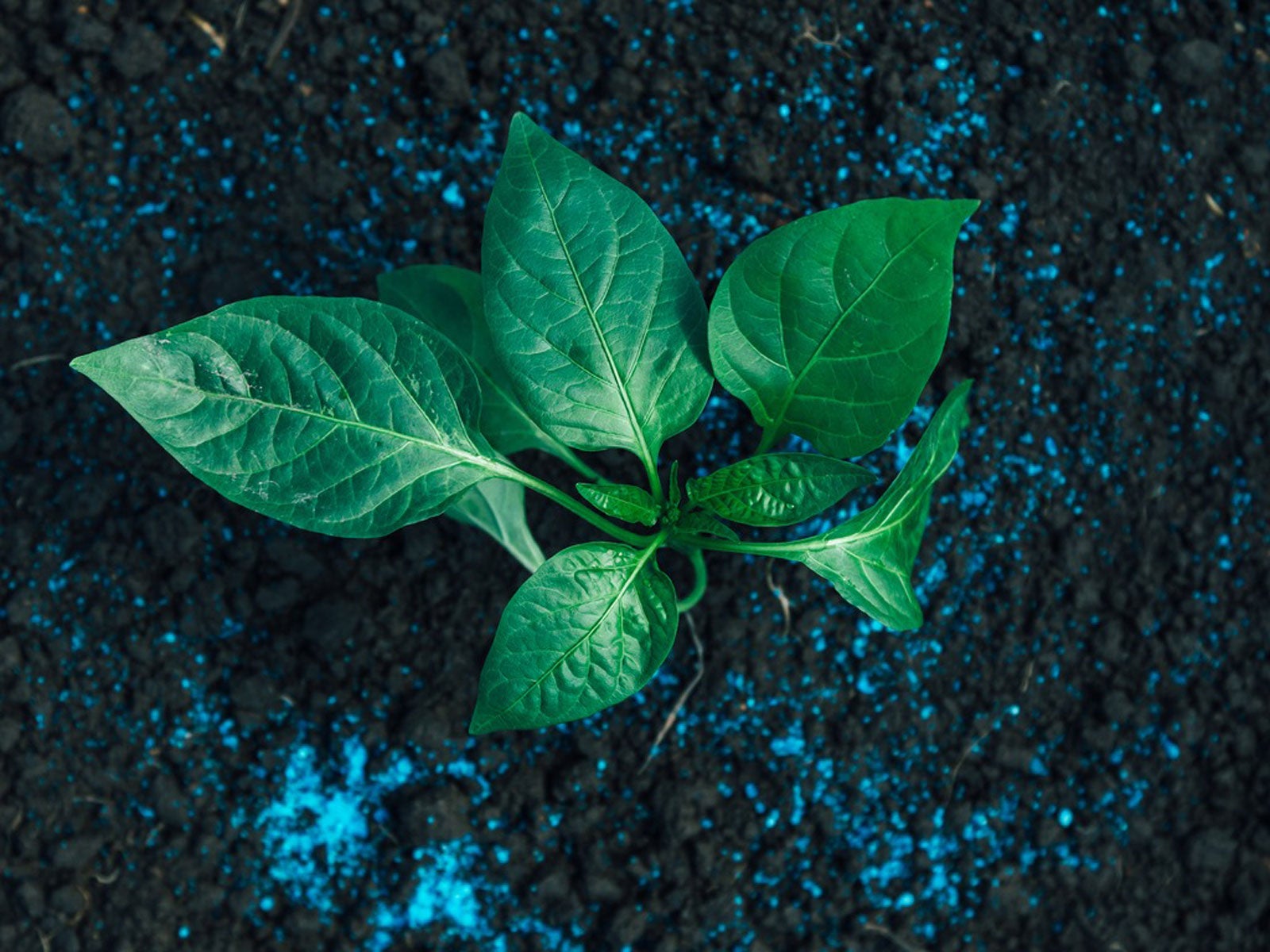Discover the Best Fertilizers for Peppers and Enhance Your Garden's Yield
Discover the Best Fertilizers for Peppers and Enhance Your Garden's Yield
Blog Article
Organic Vs. Synthetic Fertilizers: Which Is Best for Supporting Healthy Pepper Plants?
In the realm of supporting healthy and balanced pepper plants, the option between natural and artificial plant foods stands as an essential decision with far-reaching effects. While both alternatives goal to offer important nutrients to support plant development, the subtleties of their effect on the dirt, plant wellness, and the atmosphere spark a discussion that echoes throughout the gardening area. Comprehending the distinct benefits and prospective pitfalls of each plant food type is crucial for pepper farmers seeking to maximize their yields while keeping an eco-conscious and sustainable strategy.
Advantages of Organic Plant Foods
Organic plant foods offer an environmentally-friendly and sustainable technique to nourishing pepper plants, supplying necessary nutrients without making use of artificial chemicals. These all-natural plant foods are stemmed from organic sources such as compost, manure, bone dish, and seaweed, advertising dirt health and wellness and biodiversity. Unlike artificial fertilizers, natural alternatives release nutrients gradually, guaranteeing a stable and well balanced supply for pepper plants to thrive.
One substantial benefit of organic plant foods is their ability to enhance dirt framework and water retention. By improving soil health, natural plant foods promote advantageous microbial task, which assists in nutrient uptake by pepper plants. Additionally, organic plant foods reduce the threat of chemical run-off, safeguarding water resources from air pollution and protecting the atmosphere.
In addition, organic fertilizers add to long-term soil fertility by promoting the development of valuable soil organisms. These organisms help break down raw material, launching nutrients in a kind that is conveniently accessible to pepper plants. best fertilizers for peppers. By fostering a healthy soil community, organic plant foods sustain sustainable pepper growing methods that profit both plants and the setting
Downsides of Artificial Plant Foods
Artificial plant foods, in comparison to their natural counterparts, position different downsides when made use of to nurture pepper plants, affecting both plant wellness and ecological sustainability. One major disadvantage of synthetic fertilizers is their tendency to leach nutrients from the soil quickly. This rapid leaching can lead to nutrient inequalities in the dirt, creating plants to struggle with shortages or toxicities. In addition, artificial plant foods can hurt useful soil organisms, such as earthworms and beneficial microorganisms, interfering with the soil community's balance.
Additionally, the overuse of synthetic fertilizers can add to water contamination. Excess fertilizers not taken in by plants can get rid of right into water bodies, causing eutrophication, where algae blooms diminish oxygen levels in the water, damaging aquatic life. Artificial fertilizers are typically obtained from non-renewable sources, such as fossil gas, adding to carbon discharges and ecological degradation during their production.
Nutrient Absorption Comparison
When contrasting organic and synthetic fertilizers in terms of nutrient absorption, organic plant foods have the benefit of giving a more balanced and slow-release source of nutrients. Organic fertilizers contain a variety of macro and micronutrients that are not only helpful for the plants yet additionally advertise healthy and balanced dirt microbial task, which assists in nutrient uptake.
In addition, natural plant foods boost dirt framework and water retention capacity, enabling pepper plants to gain access to nutrients much more effectively. This improved soil quality facilitates origin growth, making it possible for far better nutrient absorption. Artificial fertilizers, although at first increasing plant growth due to their high nutrient concentrations, might prevent long-lasting nutrient absorption by derogatory soil health over time.
Environmental Impact Factors To Consider

On the other hand, synthetic plant foods, although frequently more focused and promptly offered to plants, can have destructive effects on the setting if not used correctly (best fertilizers for peppers). Their manufacturing requires high power inputs, resulting in greenhouse gas exhausts and contributing to environment modification. Additionally, the runoff of excess synthetic fertilizers can infect water sources, click here to read resulting in eutrophication and hurting water environments.
Ideal Plant Food Practices for Peppers
To achieve this, it is important to follow best fertilizer techniques customized to the details demands of pepper plants. One critical technique is to do a dirt examination prior to applying any fertilizers.
Another vital technique is to feed pepper plants at the correct time. Normally, peppers take advantage of receiving fertilizer at growing and afterwards again when they start to blossom. Over-fertilizing can cause nutrient imbalances and harm the plants, so it is essential to adhere to special info suggested application rates.
Additionally, selecting a balanced plant food with an NPK proportion that fits pepper plants' requirements is fundamental. Eventually, incorporating artificial and natural fertilizers deliberately can help support healthy and balanced pepper plants while reducing ecological impact.
Conclusion

Organic fertilizers use a sustainable and environmentally-friendly technique to beneficial pepper plants, offering necessary nutrients without the usage of artificial chemicals. Unlike artificial plant foods, organic choices launch nutrients gradually, ensuring a well balanced and steady supply for pepper plants to flourish.
Artificial fertilizers, in contrast to their natural equivalents, posture blog different downsides when made use of to nurture pepper plants, impacting both plant health and environmental sustainability. When comparing artificial and natural fertilizers in terms of nutrient absorption, organic fertilizers have the advantage of offering a much more balanced and slow-release source of nutrients.Moreover, organic fertilizers improve dirt structure and water retention capability, enabling pepper plants to gain access to nutrients a lot more successfully.
Report this page